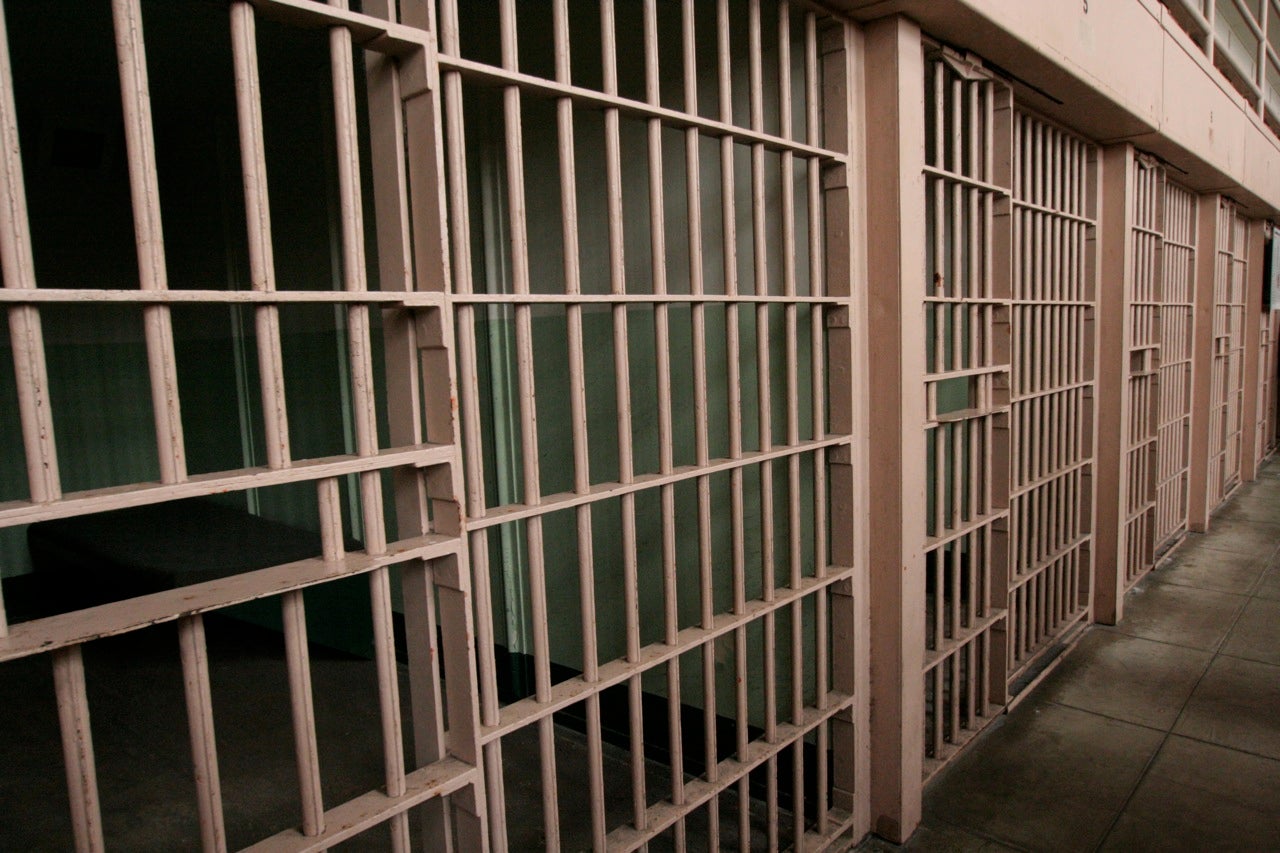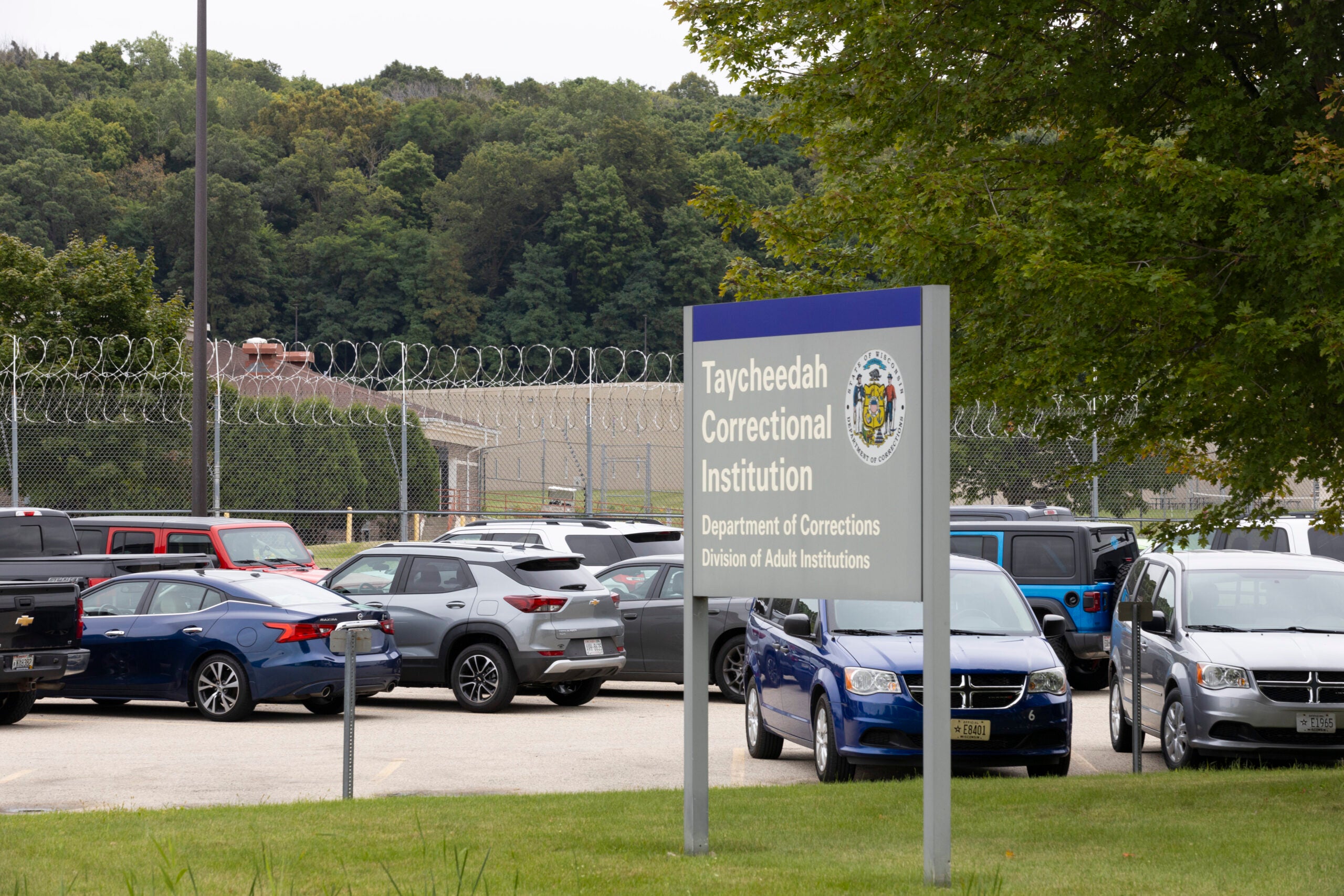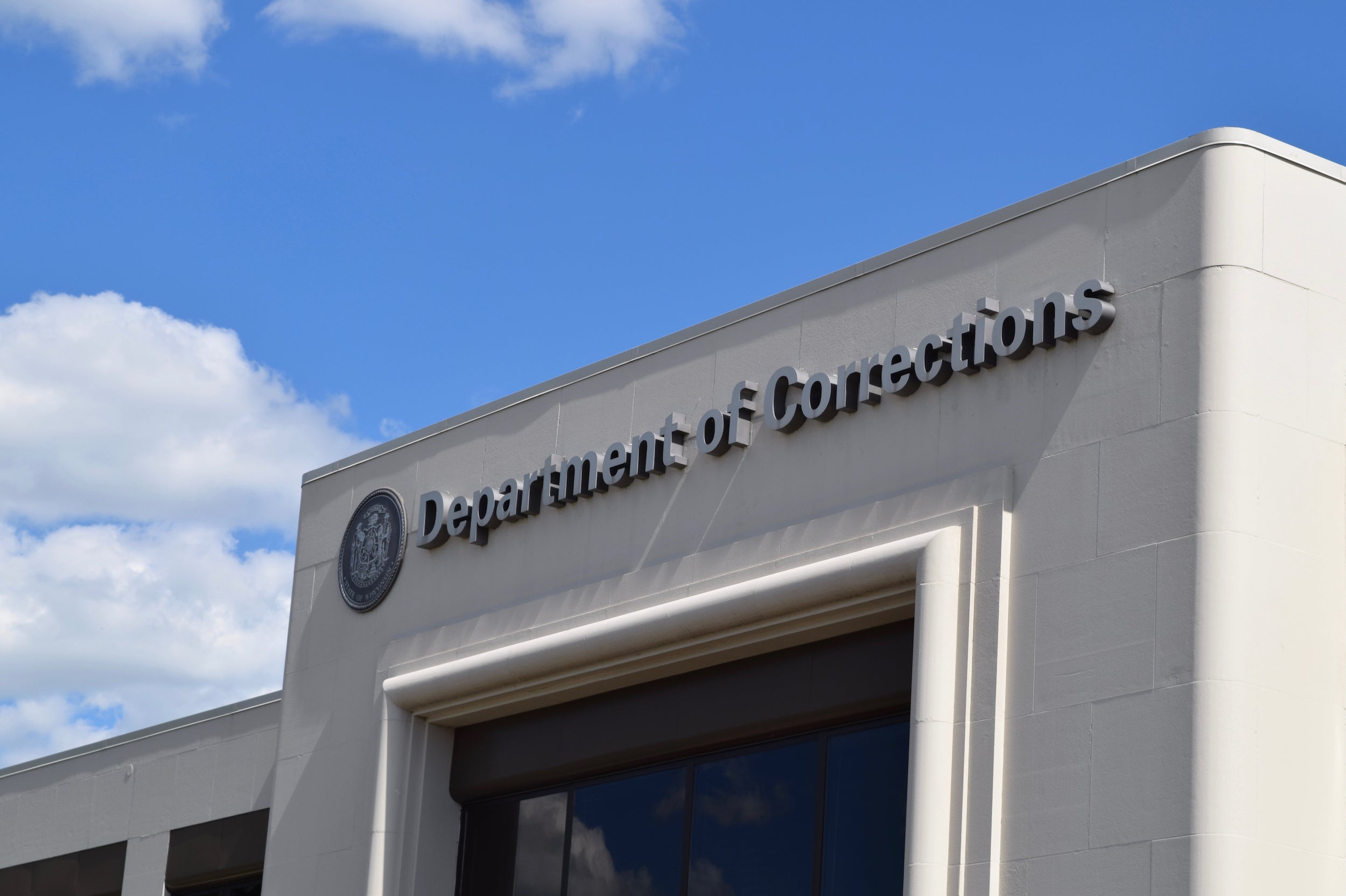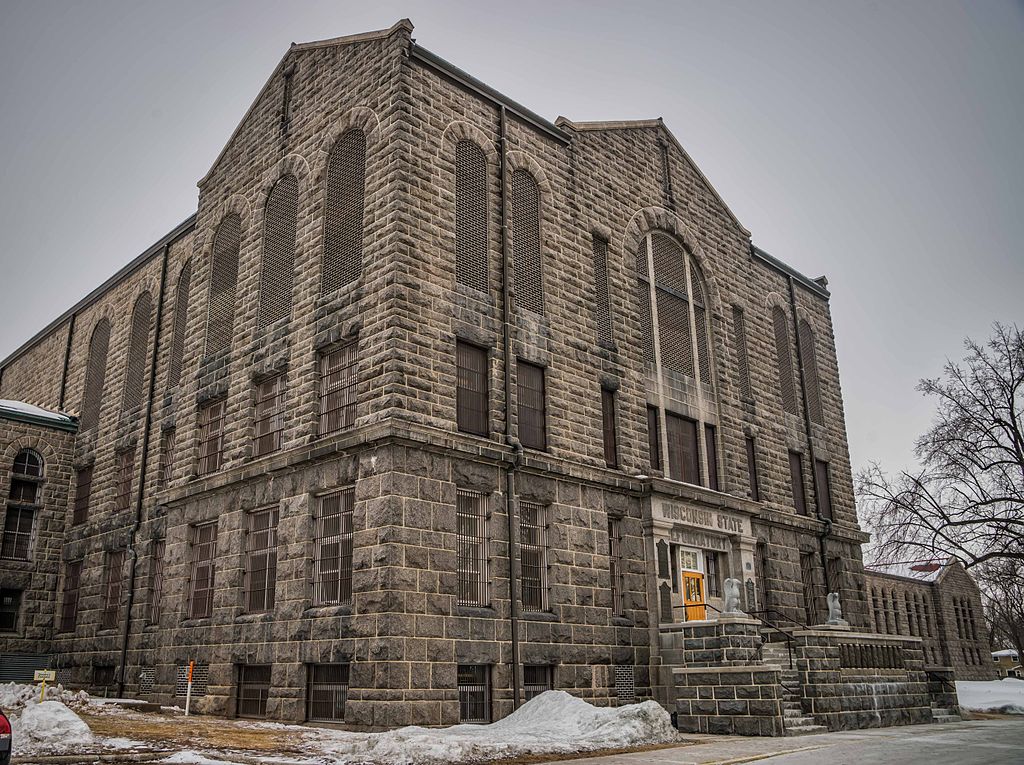State lawmakers heard often-harrowing testimony this week from formerly incarcerated people, corrections workers and other people affected by Wisconsin’s prison system.
Tuesday’s hearing before the Assembly’s Committee on Corrections comes as Wisconsin’s Department of Corrections deals with the fallout from multiple scandals.
A federal Department of Justice investigation is ongoing into allegations that staffers at Wisconsin’s Waupun prison smuggled drugs and cell phones into the maximum-security prison.
Stay informed on the latest news
Sign up for WPR’s email newsletter.
Following a separate investigation, Dodge County prosecutors filed charges last month against nine staffers at Wisconsin’s Waupun prison, alleging their neglect caused the deaths of two inmates.
And, just weeks ago, two incarcerated teens were charged with killing a counselor at the Lincoln Hills youth prison.
In testimony this week, Corrections Sgt. Paul Neyhard described surviving a different attack from an inmate while working at Oshkosh Correctional last year. Neyhard said he suffered a concussion and now has PTSD.
“I’m really sensitive to the light — this light here is just killing me,” Neyhard told lawmakers. “I cry all the time. I’m mean to my wife.”
Last fiscal year, there were 345 assaults reported against staff within Wisconsin’s adult prisons — the highest number in at least a decade. So far in the 2024 fiscal year, there have been reports of 243 assaults on staff.
Neyhard told lawmakers short staffing may have contributed to his attack. And he warned the committee Wisconsin needs to offer more treatment options, including mental health services, to incarcerated people.
That was a plea echoed by many people who testified Tuesday, including formerly incarcerated people and Wisconsinites who have loved ones in prison.
Community activist Segdrick Farley was among those who warned the committee about a dire lack of physical and mental health care within the system.
“I remember an individual actually saying, ‘If you don’t give me any help, I’m going to kill myself,’ and the correction officers laughed at him and said ‘I don’t give a f—, do it,’” said Farley, who was paroled in 2020 after spending two decades behind bars in Wisconsin.
Last year, a group of prisoners filed suit against the DOC, alleging that lockdown conditions in the Waupun prison amount to cruel and unusual punishment . Among other details, the suit described “grossly inadequate” physical, dental and psychological health care.
Citing safety concerns, Wisconsin’s prison system has been restricting the activities of men incarcerated at Waupun and Green Bay Correctional, another maximum-security prison.
DOC officials say many restrictions have been eased since those lockdowns began last year. But inmates at both facilities still face limits on their recreation time while in-person visitation remains banned at Waupun, according to the latest update from the DOC.
“At Waupun Correctional Institution and Green Bay Correctional Institution, we are working diligently to resume standard operations and have seen marked progress in this space given the historic graduating classes of correctional officers and decreasing vacancy rates,” DOC Secretary Jared Hoy wrote in a letter to the Corrections committee this week.
Hoy took over the DOC’s top job in March following the resignation of his predecessor Kevin Carr.
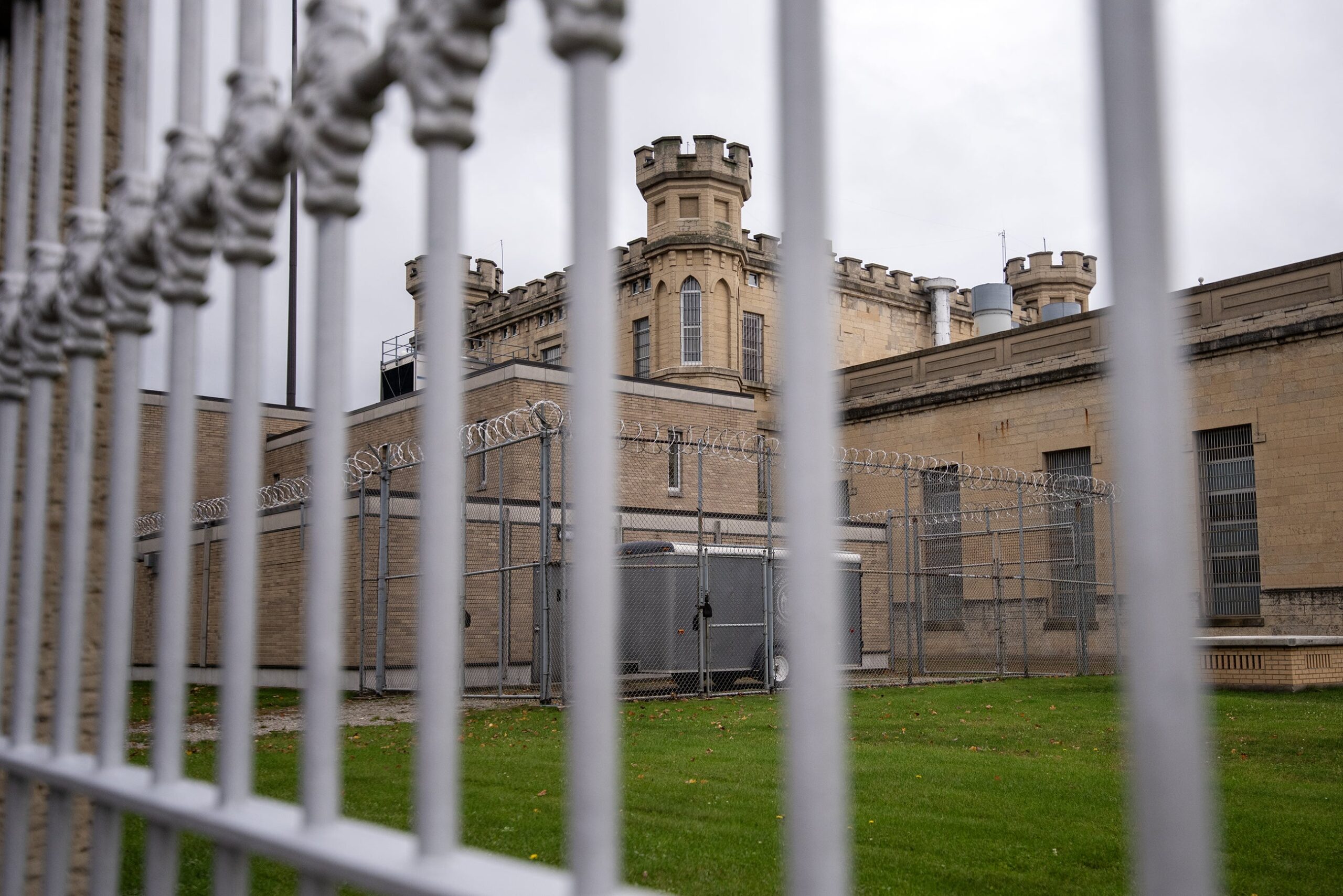
Corrections vacancies have gone down, but former staff say systemic problems remain
Waupun has the highest staff vacancy rate within Wisconsin’s prison system, with about 46 percent of corrections officer positions sitting empty. System-wide, close to 17 percent of corrections officer spots remain unfilled.
That’s an improvement compared to year ago, when 44 percent of those positions were vacant across all of Wisconsin’s adult prisons.
During Tuesday’s meeting, Corrections Committee Chair Rep. Michael Schraa, R-Oshkosh, said raises that took effect in July of last year have been helping attract new prison workers. That’s despite a labor shortage affecting the availability of corrections workers nationwide, he said.
“In this country, every single industry is seeing a decline in the workforce,” Schraa said.
A pay plan approved by Wisconsin’s Legislature and signed by Democratic Gov. Tony Evers brought starting hourly wages for corrections officers to $33 an hour, with additional pay bumps available to people who agree to work in higher-security or understaffed prisons.
But some of those who testified Tuesday questioned whether raises alone will be enough to retain qualified employees.
“You can give them $30, $40 an hour a raise”, former corrections officer Teresa Heideman told the committee. “That’s not going to change anything. That’s not going to change their safety for anyone. If you can’t keep the staff safe, how are you going to keep the inmates safe?”
Multiple former corrections workers told lawmakers that conditions within Wisconsin’s prisons have deteriorated since Act 10 eliminated collective bargaining rights for corrections officers.
Republican Gov. Scott Walker signed that sweeping legislation into law more than a decade ago.
“There used to be a system of checks and balances in place where the frontline staff had a real voice in what’s taking place on the floor right now,” retired corrections officer Paul Oosterhouse told the committee.
Hoy, the DOC secretary, was not invited by the committee to testify Tuesday. That’s because the meeting’s aim was to “listen directly from current and former staff, former inmates, and people who have loved ones incarcerated,” Schraa’s office said.
Hoy did not attend Tuesday’s meeting in-person, citing a previously scheduled obligation at Waupun Correctional. But the department sent its legislative advisor to the Capitol to relay information to the secretary, the DOC letter said.
“We have made and continue to make operational changes to ensure the safety of our staff and those in our care,” Hoy’s letter to the committee said. “For example, over the last several months we have enhanced training and frequency of security rounds, provided a new training on medication distribution and enhanced documentation, and have started security audits of each facility.”
The DOC’s letter said the department is in the midst of contract negotiations with Falcon Correctional and Community Services Inc. for a third-party review of solitary confinement and other policies.
On Tuesday, Corrections Committee members heard from a different vendor about the possibility of an audit into Wisconsin’s prison system.
Wisconsin Public Radio, © Copyright 2025, Board of Regents of the University of Wisconsin System and Wisconsin Educational Communications Board.
